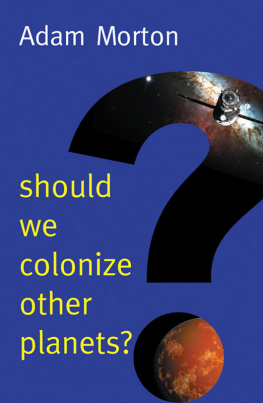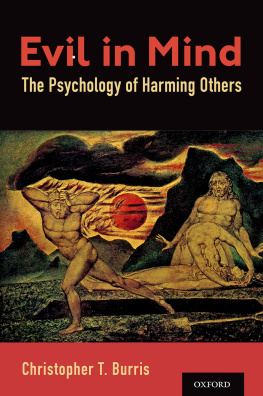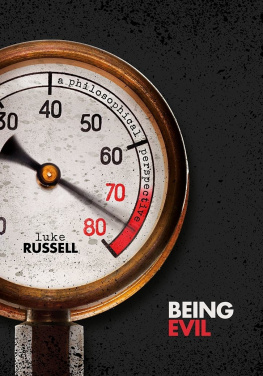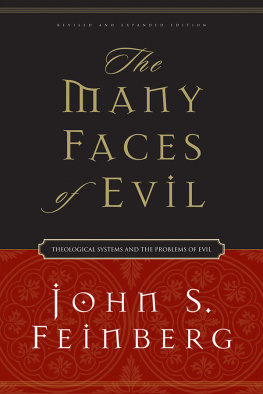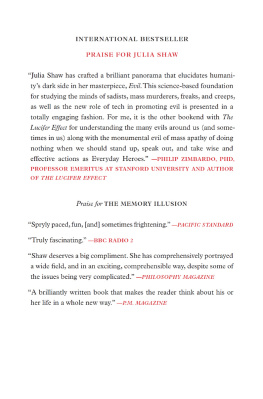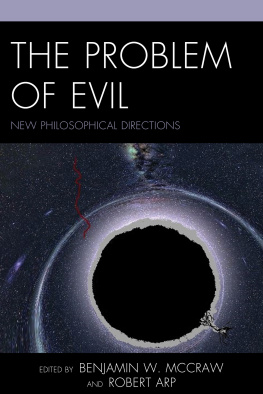Cover

| title | : | On Evil Thinking in Action |
| author | : | Morton, Adam. |
| publisher | : | Taylor & Francis Routledge |
| isbn10 | asin | : |
| print isbn13 | : | 9780203352137 |
| ebook isbn13 | : | 9780203704127 |
| language | : | English |
| subject | Good and evil. |
| publication date | : | 2004 |
| lcc | : | BJ1401.M67 2004eb |
| ddc | : | 170 |
| subject | : | Good and evil. |
Page i
On Evil
the author actually does what too few academics do: exhibit thought in action, not substituting the stale cite for an original idea.
Fred Alford, author of What Evil Means to Us
Page ii
Praise for the series
allows a space for distinguished thinkers to write about their passions
The Philosophers Magazine
deserves high praise
Boyd Tonkin, The Independent (UK)
This is clearly an important series. I look forward to reading future volumes.
Frank Kermode, author of Shakespeares Language
both rigorous and accessible
Humanist News
the series looks superb
Quentin Skinner
an excellent and beautiful series
Ben Rogers, author of A.J. Ayer: A Life
RoutledgesThinking in Actionseries is the theory junkies answer to the eminently pocketable Penguin 60s series.
Mute Magazine (UK)
Routledges new series,Thinking in Action, brings philosophers to our aid
Evening Standard (UK)
a welcome new series by Routledge
Bulletin of Science, Technology and Society
Page iii
ADAM MORTON
On Evil

NEW YORKANDLONDON
Page iv
First published 2004
by Routledge
29 West 35th Street, New York, NY 10001
Simultaneously published in the UK
by Routledge
11 New Fetter Lane, London EC4P 4EE
Routledge is an imprint of the Taylor & Francis Group
This edition published in the Taylor & Francis e-Library, 2004.
2004 Adam Morton
All rights reserved. No part of this book may be reprinted or
reproduced or utilised in any form or by any electronic, mechanical,
or other means, now known or hereafter invented, including
photocopying and recording, or in any information storage or
retrieval system, without permission in writing from the publishers.
A catalogue record for this book is available from the British Library
Library of Congress Cataloging in Publication Data
Morton, Adam.
On evil / Adam Morton. 1st ed.
p. cm. (Thinking in action)
Includes bibliographical references and index.
1. Good and evil. I. Title. II. Series.
BJ1401 .M67 2004
170dc22 2003026285
British Library Cataloguing in Publication Data
A catalogue record for this book is available from the British Library
ISBN 0-203-70412-6 Master e-book ISBN
ISBN 0-203-35213-0 (OEB Format)
ISBN 0-415-30518-7 (hbk)
ISBN 0-415-30519-5 (pbk)
Page v
Then for the first time, we became aware that our language lacks words to express this offence, the demolition of a man.
Primo Levi, If This Is a Man (1959)
The greatest evil is not now done in those sordid dens of crime that Dickens loved to paint. It is not done even in concentration camps and labor camps. In those we see its final result. But it is conceived and ordered (moved, seconded, carried, and minuted) in clean, carpeted, warmed, and well-lighted offices, by quiet men with white collars and cut fingernails and smooth-shaven cheeks who do not need to raise their voice.
C. S. Lewis, Preface to The Screwtape Letters (1961)
Page vi
This page intentionally left blank.
Page vii
Foreword | ix |
One | Evil and Otherness | |
Two | The Barrier Theory of Evil | |
Three | Nightmare People | |
Four | Facing Evil: Reconciliation | |
Notes | |
Index | |
Page viii
This page intentionally left blank.
Page ix
Foreword
This is a book about how we can understand the awful things people do. My main inspiration for this book has not been the philosophers and theologians who have reflected on the meaning of evil. I am a professional philosopher and I have read much of this literature. But I must say that it has given me much less of a grasp of what lies behind atrocity than the work of the witnesses, people such as Hannah Arendt, Gitta Sereny, Primo Levi, Alexsandr Solzhenitsyn, and Desmond Tutu, who have undergone or had to deal with atrocity first hand. One of the legacies of the twentieth century is the reflections of such people. I have also learned a lot from recent psychological work on dangerous people. So this book is a philosophers reaction to the work of those who have observed, in real life or the laboratory, evil motives at work. It is not a reflection on any central texts of our culture. It does not take a traditional concept of evil, supposed to be a fixed target, and try to say something deep about it. I am convinced, in fact, that that is precisely what we should not do. Instead it asks How should we think about the atrocities around us? What concepts do we need, if we are to know how to explain and how to react?
The main text avoids scholarly disputes and complications. The notes at the end of the book refer to sources and debates. When something I say seems wrong or mysterious, you
Page x
might look at the notes for that section. I have had wonderfully helpful comments on drafts of this book from Susanna Braund, Tony Bruce, Neera Badhwar, Susanne Bobzien, Ruth Garrard, Peter Goldie, and Shaun Nichols. An American Philosophical Association symposium on Claudia Cards The Atrocity Paradigm in May 2003 widened my perspective dramatically. My senior seminar in the spring of 2003 at the University of Oklahoma was invaluable for trying out ideas and discovering the range of reactions to facts and theories about human awfulness. Each of the twenty-four students has influenced some part of this book.
Page 1
Evil and Otherness
One
Were in the midst of it, as always. Human beings are committing atrocities upon one another with the same enthusiasm or carelessness that has always marked our species. When we think of evil we think first of large-scale horrors. We think of the Holocaust in Europe, the Gulags of Stalins USSR, of Cambodia and Rwanda. But equally horrifying things happen on a smaller scale. As I write young women are disappearing regularly in the Mexican state of Juarez, murdered by some systematic and as yet unknown group. A newspaper article reports that in South Africa sixty children a day are raped, some of them less than a year old. In Britain and the Middle East women who are seen to have dishonored their families are frequently murdered. In the United States school and workplace shootings are far from uncommon. And these must be taken against the background of isolated everyday murders, rapes, tortures, and assaults that has always been part of life everywhere.
Next page

